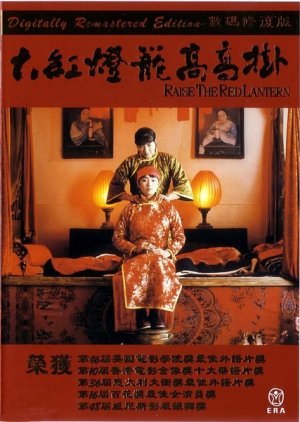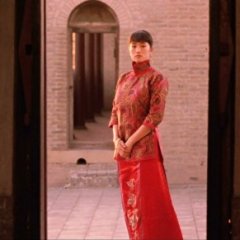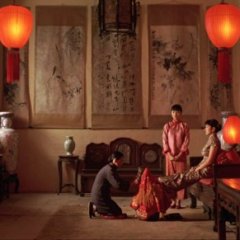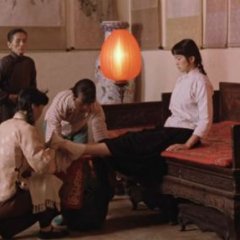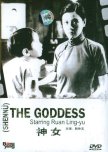 Stunning Visuals in Asian Cinema
Stunning Visuals in Asian Cinema - Română
- Español
- English
- magyar / magyar nyelv
- Titlu Nativ: 大红灯笼高高挂
- De asemenea cunoscut ca și: Da hong deng long gao gao gua , 大紅燈籠高高掛 , Rote Laterne
- Regizor: Zhang Yi Mou
- Genuri: Istoric, Romantism, Dramă
Cast și credite
- Cao Cui FenZhuo Yan [Second wife]Rol Principal
- He Sai FeiMei Shan [Third wife]Rol Principal
- Ma Jing WuMaster ChenRol Principal
- Kong LinYan Er [Song Lian's servant]Rol Principal
- Cui Zhi GangDoctor GaoRolul de Sprijin
Recenzie

Această recenzie poate conține spoilere
"People are ghosts, and ghosts are people."
The cold stone complex with glowing red eyes in Zhang Yi Mou’s Raise the Red Lantern bids young women into its luxurious lifestyle. Afterall, it’s just as easy to marry a rich man as it is a poor man. Or is it?Gong Li stars as Songlian the newest concubine of a rich man in this gilded cage of competitive horrors. Educated but with few options after her father dies she marries an older man. She quickly learns that the women and servants are pitted against one another in a popularity game to garner the master’s favor. Red lanterns are lit in the courtyard and living apartment of the woman he chooses for the night. The clickety clack of massage hammers used on the chosen one’s feet turns into a Pavlov’s bell for the women. The master’s idea of foreplay is something akin to “brace yourself darlin’” but the women do what they must to attract his attention and keep it.
Other than the privileges the chosen one temporarily receives, the concubines hold no power. They are largely interchangeable, this is the territory of the powerful master and his game and rules. The women’s fate is tied to pleasing him and gifting him sons. In the ruthless conflict between the concubines, betrayal and tragedy are always near at hand.
Master Chen’s face is never focused on. His is the face of oppression and rigid familial customs, the ringmaster in the tragic circus.
Songlian discovers that the people in the huge complex are largely ghosts living in the house abiding by the rules of ancestors long gone. She tries to rebel, game the system, and in the end becomes ostracized and alone. When she witnesses an unspeakable act she realizes that she is trapped with only two ways out-death or madness.
Raise the Red Lantern criticizes a number of social structures as well as the plight of women during this time. Outdated cruel traditions that guide their everyday life are firmly in the director’s bullseye. It is gripping and difficult to watch at times.
Songlian is not an easy character to like as she can be very abrasive and snobbish. Her youth and independent nature cause her to chafe under the ridiculous rules and volatile hierarchy. She learns the hard way the price for disobedience. Gong Li’s expressive face helps us to understand how we should feel as well. Rebellious. Trapped. Isolated. Horrified. She gives a gloriously understated performance as a young woman caught in the chains of family customs; the players involved more like ghosts ensnaring fresh faces to drag into their macabre story.
Zhang Yi Mou saturates some scenes in a rich red light, the color of birth, life, and death. At other times an icy blue hue overtakes the scene driving home the solitariness of the one not chosen. The large complex could almost be given a credit as well the way Zhang lovingly uses the stunning architecture to showcase the concubines’ limited stone world. There was no soft place to land amongst the hard edges. The lush colors of their costumes played in stark contrast to the institutional banality. It was a remote facility both physically and emotionally.
The sets, concubines, and costumes are intoxicatingly beautiful but lying beneath them is a grotesque cruelty. Raise the Red Lantern is a treat for the eyes as most of Zhang Yi Mou’s films are. Though difficult to watch this story of the powerful’s abuse of women and tradition is one worth trying.
“What do people amount to in this house? They’re like dogs, cats, or rats, but certainly not people.”
1/12/23
Considerați utilă această recenzie?
Considerați utilă această recenzie?

